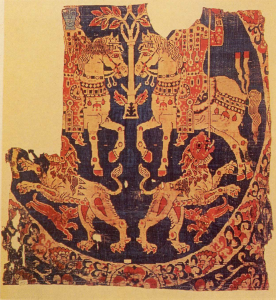Originally posted Jan 26, 2015, 6:52 AM by ASIMS America-Ireland [ updated Jan 26, 2015, 7:21 AM ]
Please find attached the programme for the upcoming thematic conference on Church and Settlement in Ireland: Landscape, Life, Legacy. Abstracts of the papers are available at www.irishsettlement.ie
The conference has been organised by the GSIHS in association with the American Society of Irish Medieval Studies. It will take place in All Hallows College, Drumcondra, Dublin from Friday 27 February to Sunday 1 March.
Full conference Registration costs €80 (€50 for students). Single day registration is available for €30.
You may register for the conference online by credit card using PayPal by clicking on the following link: http://irishsettlement.ie/conferences/annual/register-gsihs-conference/
Registration may also be paid by sending a cheque to the treasurer – Dr David Fleming, Department of History, University of Limerick, Limerick, Ireland.
Hotel standard B&B accommodation at All Hallows can be booked at the rate of €50 per night. Email hello@purcellhouse.ie Phone +353-1 852 0754.
For conference attendees who are arriving in Ireland a little earlier, a field trip to the Boyne River Valley is being organised for Thursday 26 February. Led by field experts Dr. Matthew Stout and Dr. Geraldine Stout, the tour will take in prominent medieval sites in the region: Bective Abbey, Slane, Mellifont and Monasterboice. A courtesy minibus is being provided, departing from All Hallows College at 9am, Thursday 26 February, arriving back by 6pm. There will be no fee, but people will need to book their place in advance. Please send an e-mail to Dr James Lyttleton at jilyttleton@hotmail.com no later than Thursday 12 February.

